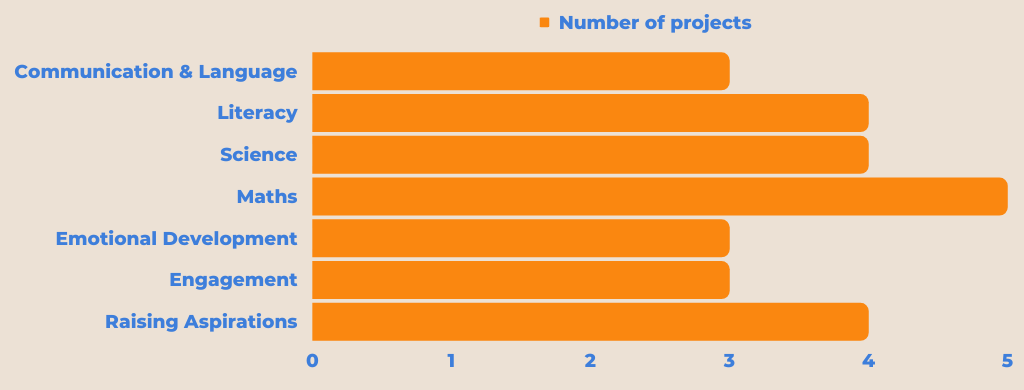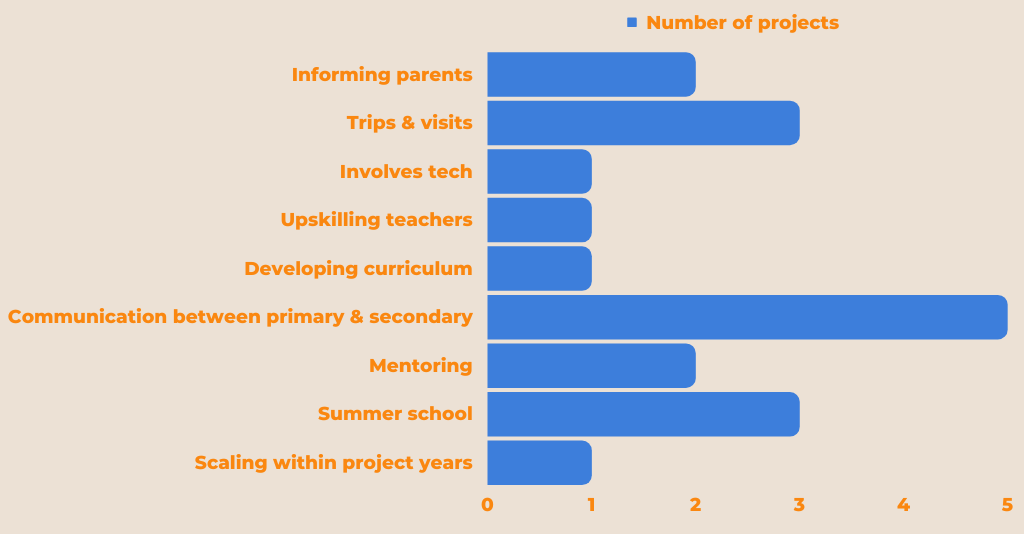
Flying High
Supporting children who do well at primary school to stay on the path to success as they move to secondary.
How would you feel if you started secondary school as a high achiever, filled with excitement about new learning opportunities – only to be taught the same things you learnt at primary?
Bored? Frustrated? Unmotivated?
Giving kids from poor communities some decent opportunities to succeed at school has always been an incredibly worthwhile cause. To get them a good job, it’s essential that these children leave school with the best possible grades, and that makes SHINE’s work even more important than ever.
A lack of challenge
Many of the highest-achieving disadvantaged children at primary school start secondary school feeling like that. And because of that lack of stretch at the beginning of secondary school, a high proportion leave without good qualifications. In fact, almost two in three disadvantaged children with the best marks in English and maths at primary school do not achieve an A or A* in these subjects at GCSE.
Alongside being taught the same things, these children often don’t feel challenged enough in their lessons because teachers often don’t know enough about what their pupils have already learned at primary school. Many disadvantaged children don’t have the means to go on school trips to build their cultural knowledge, which can have a positive impact on educational achievement. And their parents might not have the advanced expertise, confidence or resources to support their learning at home1. Many children find they aren’t given enough insight into the career or university opportunities that are available to them2.
These barriers can have a huge impact on their achievement at secondary school and their attitudes towards learning. Many children can quickly get used to performing at lower levels than they are capable of3. The result? A lack of interest in school and low expectations.
Not only do many of these children leave school without good qualifications, but those who do achieve the grades often turn down the opportunity to go to a good university because they haven’t been able to build their own sense of confidence and aspirations. In fact, a recent report found that only 2% of high-achieving disadvantaged children from 29 schools in England went on to study at a Russell Group university4.
Schools across the North of England are doing the best they can to support the most-able children to succeed and all parents want the very best for their children. But unless we all commit to helping them to thrive, as they move from primary to secondary school, they will continue to be left behind.
What works?
- Building achievement in maths, English and/or science in the first few years of secondary school.
- Establishing better ongoing communication between primary and secondary school teachers to make sure there is a consistent approach to teaching as children move between schools.
- Making sure that schools engage parents and carers as equal partners in their child’s learning during the move from primary to secondary school.
- Improving information and practice sharing between primary and secondary schools.
- Helping schools develop more supportive, holistic practices for children during the move from primary to secondary school to improve learning and reduce exclusions5.
Flying High project outcomes
SHINE currently funds Flying High projects across the North of England which aim to improve outcomes in a number of areas. The full range of outcomes is detailed in the chart below. Click the image for a more detailed breakdown.
Flying High project activities
In order to achieve these outcomes, our current Flying High programmes incorporate several elements, which vary from project to project. These are summarised below. Click the image for a more detailed breakdown.
What funding do we offer?
We provide funding to help schools, charities and other organisations to develop projects that can build on the evidence of what works in supporting children and parents during this phase. We’re committed to sharing our learning with like-minded organisations so that, together, we can help high achievers to excel at secondary school and beyond.
References
- Ofsted, The most able students: Are they doing as well as they should in our non-selective secondary schools?, 2013
- Khattab, Nabil, Students’ aspirations, expectations and school achievement: what really matters?, 2015
- Khattab, Nabil, Students’ aspirations, expectations and school achievement: what really matters?, 2015
- Ofsted, The most able students: Are they doing as well as they should in our non-selective secondary schools?, 2013
- Scottish Government, Primary to secondary school transitions: systematic literature review, 2019


